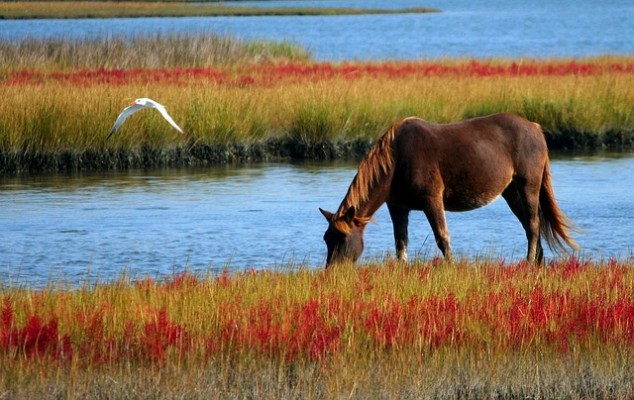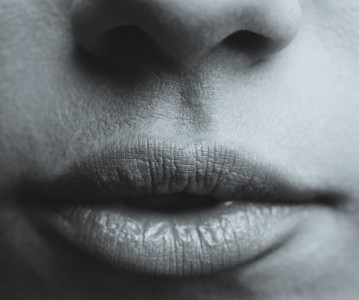by Vishal Anand
Till yesterday, I was the owner of a pet horse. But he has been missing since morning. I think he strayed this way. I search for him on these dusty roads, trying to decipher his footprints on parched earth, lending an ear to the sonorous wind coming my way. High in the sky, a vulture spreads its wings and floats on buoyancy of baked air. I wonder, half in fear and half in glee, whether it has found before I could what I was looking for. The blazing sun slashes its way through its feathers. Along the road, the solitary figure of a human appears. It comes nearer and nearer until we meet. He is a man of middle age, dressed in village attire to keep out the sun, with a jute headgear and white tunic, unlike me in crumpled clothes and disheveled hair.
He had started surveying me with a curious eye ever since I entered his view. Now that we are very close, he stops and looks at me slightly puzzled. “What are you doing here, young man, at this time of the day, in such a harsh weather?”’, he says.
“Sir, I am looking for my horse – my pet horse”, say I.
“Oh, I see. How old is he?”
“He was almost as old as I was. He has been my constant companion ever since I can remember. I grew up with him, we grew up together.”
“And what did he look like?”
“He was a beautiful horse. Its body was covered with golden, tanned hair. The mane on his neck looked like a royal crown. There was a white mark where a third eye would be. His legs were long and muscular, culminating in dark brown hooves which gripped the ground powerfully. He could jump really high in the air. He was not very obedient though. I really had to train him to understand my instructions and follow them.”
“But why did he run away? Did you not take good care of him?”
“Oh, I did. I took really good care of him. I used to punish him with whiplashes if he did not obey my commands and I also fed him costly hay, though he did not seem to enjoy it as much I would have liked.”
“What you just said sounds so paradoxical. You say you like him but that you also punished him.”
“Old man, you do not understand. The town I come from,-everyone is the owner of a horse each. Irrespective of whether a man is rich or poor, young or old, frail or strong, ill or healthy, budding saplings or mighty oaks, he has a horse. People live and die with their horses; they are even buried with them. When a child is born in a family, his parents go to the Supreme Town Council and inform them of the child’s birth. The Supreme Town Council follows a procedure which is totally random and awards a young horse to the family, which will be associated with the newborn child. In our society, a person’s worth and esteem in the eyes of the others is measured by the demeanor of his horse. The horses belonging to the rich citizens are draped in silks and satin, with garlands on their necks and gold rings on theirs hooves. They radiate a royal mien. On the other hand, the horses which are owned by the paupers and the penurious betray the poverty of their owners. These docile creatures are dressed in rags and have cadaverous frames. As I grew up, I compared my horse with those of richer townsmen. I used to turn green with envy when my horse and their horses stood together. I failed to notice that even with weak, emaciated horses, some citizens seemed content and peaceful. I cursed my fate and bemoaned the perceived injustice meted out to me. I even petitioned the Supreme Town Council to take this horse away and give me one with a more colorful and stronger lineage. But they replied that receiving a horse at birth was like playing a roulette game and they, like dutiful croupiers, were only supposed to conduct and not intervene on the behalf of those whose numbers sealed their fates. They believed in the impartiality of the roulette wheel; they were convinced of the neutrality which the absolute randomness of their process brought.
“Then I decided to take things in my own hand. I decided to train my horse. I started whiplashing him hard so that he could run faster and carry heavier loads. His ability to carry heavier loads allowed me to earn a little extra wealth which I then invested again for the emancipation of my horse. I bought him some colourful clothes to make him happy, and expensive hay to make him even stronger so I could earn more money, which I would again channelise to improve the status of my pet. This seemed a very logical and rational plan to me. My only vested interest in the scheme was the pleasure I would derive when I would see him standing proudly, hoof to hoof and mane to mane, with the horses of more privileged upbringing. I did all this for his upliftment and empowerment.
“But the foolish animal did not appreciate that. He did not care about those colourful clothes and expensive hay. He seemed very content chewing the cud of the green grass while loitering about the town, soaking in the environment and basking in the warm sun. He wanted to jump as high as he could, but not higher. For him, the colourful clothes were superfluities –fetters to keep him chained and isolated. He wanted to reach out to and mingle with other horses, without any barriers and discriminations. At daybreak, he climbed green hill tops to catch the first rays of the morning sun and graze the dew soaked grass; at twilight he perched on cliffs and caught the falling sky. He tried leaping over the fence on many occasions and I had difficulty reining him in. I tried to give him a vision, a dream, a desire –, but he was too stupid to understand that and shunned everything. For his own good, I muffled his yelps and muzzled his neighs. But he revolted and bolted.
“In hindsight, his absence makes me feel that I should have listened to his silent protests more carefully. I am sad now. I have lost my only companion since birth. In my clamor to be respected, I lost track of the truly respectable. So here I am, ruing his loss and enquiring unknown fellow travelers of his whereabouts on this dusky road on a hot, mid-summer noon.”
“And I am sad for your loss, boy! What did you call him, though? I mean what name did he respond to?”
“I called him Lufta.”
“Lufta?”
“Yes, in our local dialect, it means Life!”






